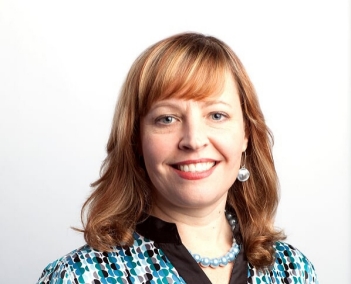Researchers at the University of Oklahoma are leading an effort to strengthen families in Oklahoma by implementing the Parent-Child Assistance Program, an award-winning, evidence-informed program developed at the University of Washington School of Medicine that provides assistance to pregnant and parenting mothers struggling with addiction.
Supporting the effort is a consortium of public and private funders, including the Arnall Community Fund at the Oklahoma City Community Foundation – which has awarded a $1.5 million gift to the OU Foundation to launch this project – along with additional support from Casey Family Programs, the Oklahoma Department of Human Services and the Oklahoma Department of Mental Health and Substance Abuse Services.
“Our hope is to mirror the success in the state of Washington and expand the program throughout Oklahoma and beyond,” said Sue Ann Arnall, president of the Arnall Family Foundation and committee member of the Arnall Community Fund at OCCF. “Robust evaluation results will hopefully show we can help families thrive while saving critical state funds, which aligns closely with our mission to make transformational changes in the welfare of children.”
Oklahoma currently has rates above the national average in substance use, incarceration, childhood adversity and foster care. Evaluators of the PCAP program at OU will measure possible cost savings stemming from reductions in incarceration, substance use disorders, foster care and future substance-exposed newborns. In addition to statewide savings through reduced incarceration and foster care rates, the landmark legislation called the Family First Prevention Services Act could provide Oklahoma with eligibility to receive federal matching funds for state child welfare agencies that employ proven prevention strategies in parental substance abuse, mental health and parenting programs.
Erin Maher, Ph.D., OU associate professor of sociology and associate research director for OU’s Data Institute for Societal Challenges, is the principal investigator and will lead the project.
“Supporting mothers facing complex challenges during a time when they desperately want to be good parents is a window of opportunity to make a profound difference,” Maher said. “I am incredibly grateful to be part of a state making these investments in partnership with our university and philanthropy. It is an investment in hope, as fundamentally, recovery and parenting are both acts of hope.”
While not required, many PCAP case managers have personal experience with recovery.
“As a mental health agency, we are particularly encouraging of the peer recovery support specialist role in helping women overcome substance use and post-partum conditions with proven interventions,” said Heath Hayes, chief information officer for the Oklahoma Department of Mental Health and Substance Abuse. “Recovering mothers helping mothers in need is a continuum we can all be proud of creating.”
OU also made significant contributions to this project, offering graduate student support and funding for a national symposium on substance use disorders.
“This grant in support of our Department of Sociology is an example of OU’s ability to be a catalyst to gather together everyone who cares about the strength of our families and the future of our state,” said David Wrobel, dean of OU’s Dodge Family College of Arts and Sciences.
Shane Connelly, Ph.D., director of the newly established Institute for Society and Community Transformation within OU’s Office of the Vice President for Research and Partnerships, also agrees.
“This project embodies OU’s mission and is an excellent example of how OU partnerships with public and private institutions contribute to implementing and evaluating research-based solutions to significant societal challenges,” she said.
The program serves mothers facing many challenges in addition to problematic use of substances, many of whom grew up with experiences of child abuse and neglect. Highly trained and closely supervised case managers work intensely with about 16 mothers at a time over three years, seeing them through recovery, connecting them with community resources and services for themselves and their child and providing timely advocacy to address their needs. Rather than turning a back on these mothers, PCAP provides consistent support that has been shown to result in reduced dependency on child welfare service and public assistance, fewer alcohol- and drug-exposed infants, increased employment, increased educational attainment and reductions in subsequent birth rates for mothers on Medicaid when looking at outcomes before and after the program. Studies have shown that these reductions, in turn, lead to financial savings. Now, the program will be tested using a more rigorous study design and compare outcomes to similar women receiving services in the community, but not PCAP.
“We are delighted to partner with our colleagues in Oklahoma to bring PCAP to the state,” said Susan Stoner, Ph.D., director of the Washington State Parent-Child Assistance Program and a research scientist with the Addictions, Drug & Alcohol Institute at University of Washington Medicine Psychiatry & Behavioral Sciences. “We expect that PCAP in Oklahoma will demonstrate strong, positive outcomes for mothers in the program, as it has in Washington state, opening the door for scaling up to benefit mothers and families across the nation.”


